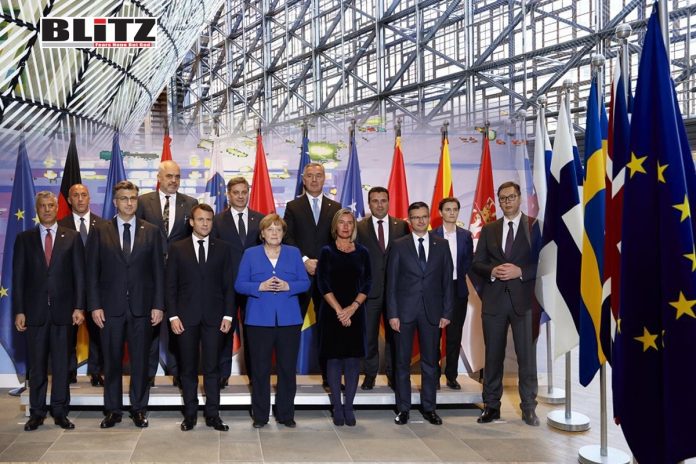As the European Union’s 27 presidents and prime ministers convene for a crucial summit, the focus is not solely on internal affairs. Rather, the gathering comes at a time when external pressures loom large, casting a shadow of uncertainty over the bloc’s future trajectory.
Dubbed an “arc of instability”, a vast geography stretching from sub-Saharan Africa through North Africa, the Middle East, Eastern Europe, the Caucasus, and South and Central Asia, presents a complex tapestry of challenges. From escalating tensions in the Middle East to the looming specter of famine in North Africa, the EU finds itself confronted with a myriad of pressing issues demanding urgent attention.
In the Middle East, the EU’s chief diplomat, Josep Borrell, has condemned Israel for exacerbating the humanitarian crisis in Gaza, characterizing it as a “manmade” famine. Such developments not only underscore the urgency of addressing regional conflicts but also raise concerns about the potential for further destabilization in neighboring regions.
Meanwhile, in North Africa, the specter of famine looms large over Sudan, threatening to engulf millions in a humanitarian catastrophe. The ongoing conflict between the Sudanese Armed Forces and the Rapid Support Forces has precipitated a dire humanitarian situation, with the UN warning of the world’s largest hunger crisis unfolding in the region.
Against this backdrop, European leaders are acutely aware of the potential for a new migration crisis should conflicts in the Middle East and Africa escalate further. Memories of the 2015 migration crisis, which saw a million Syrian refugees crossing into Europe, remain fresh, underscoring the need for proactive measures to address the root causes of displacement.
Compounding these challenges is the escalating crisis in Ukraine, where Russian advances on the battlefield have raised concerns about the country’s ability to withstand mounting pressure. NATO Secretary-General Jens Stoltenberg has warned of Kyiv’s dwindling ammunition supplies, highlighting the urgent need for international support.
In response, European Commission President Charles Michel has called for a “war economy” mode, emphasizing the need to bolster defense capabilities in the face of growing threats from Russia. However, he also acknowledges the need for greater EU self-reliance in security matters, particularly in light of shifting dynamics in transatlantic relations.
Indeed, the EU’s foreign policy challenges extend far beyond immediate security concerns. As the bloc grapples with an increasingly multipolar world, the need for a clearer, wider grand strategy becomes ever more pressing. With key allies like the United States facing their own internal challenges, Europe must chart a course that prioritizes stability and resilience in an uncertain global landscape.
According to analysts, several states in particular will be crucial to shaping how this plays out in a fast-changing multipolar world. With respect to the US, a long-standing ally of Europe, greater stability has been infused into the bilateral relationship following Joe Biden’s arrival in the White House. However, Donald Trump, who has called for the EU’s further dismemberment, could well win again in November.
However, no matter which of Trump or Biden wins, the overall geopolitical context for Europe may worsen significantly in the next half-decade. This is not just because of Russia, but also wider problems, including instability in key countries in neighboring regions.
The bloc therefore faces huge international challenges that may only grow. While it is on a trajectory to become a stronger, more progressive force in world affairs, it still has a long way to travel in this direction to fulfill its ambitions.
Ultimately, the EU summit serves as a stark reminder of the formidable challenges facing the bloc on the international stage. While progress has been made, much work remains to be done to realize Europe’s ambition of becoming a stronger, more progressive force in world affairs. As the leaders of the EU convene to confront these challenges head-on, the stakes could not be higher.




